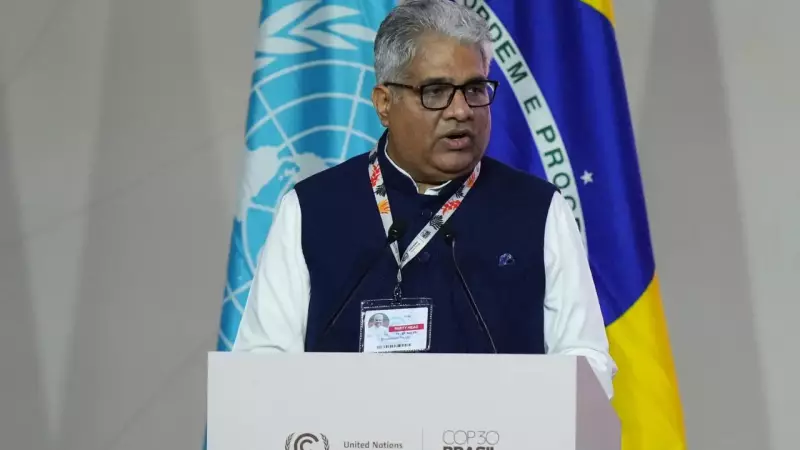
In a powerful address on the global stage, India has turned the tables on wealthy nations, demanding they demonstrate greater ambition in the fight against climate change. The call comes just ahead of India submitting its own new climate action pledges to the United Nations next month.
India's Firm Stand at COP30
While delivering India's national statement at the ongoing UN climate conference (COP30) in Belem, Brazil, Environment Minister Bhupender Yadav articulated a clear and consistent position. He urged developed countries to not only honor their existing commitments but also to aim higher. Developed countries must reach 'net zero' emissions far earlier than their current 2050 target dates, he asserted on Monday.
Minister Yadav emphasized that this demand is rooted in fairness and historical responsibility. Wealthy nations, as the primary historical emitters, bear a greater responsibility for climate change, while countries in the Global South suffer its most severe consequences.
The Trillion-Dollar Question: Climate Finance
A central pillar of India's argument revolves around climate finance. Yadav explicitly called on rich nations to fulfil their obligations under Article 9.1 of the Paris Agreement. This involves providing new, additional, and concessional climate finance estimated to be in trillions of dollars.
This remark on "trillions" directly reflects the growing demand from the Global South. It seeks to mobilize a staggering $1.3 trillion annually by 2035 from developed nations to assist developing countries. This figure stands in stark contrast to the $300 billion annually by 2035 that was a point of serious concern during the COP29 talks in Baku, Azerbaijan, last year.
Leading by Example: India's Climate Track Record
While applying pressure on others, India also showcased its own substantial progress. Minister Yadav highlighted how India has successfully demonstrated that development and environmental stewardship can go hand-in-hand, fulfilling its climate promises well ahead of schedule.
India's emission intensity has declined by over 36% since 2005, a significant achievement. Furthermore, the country's non-fossil fuel-based energy capacity, currently around 256 GW, accounts for more than half of its total electric installed capacity. This is a key NDC target that India achieved a full five years ahead of its original schedule.
Yadav also pointed to the country's newly launched Nuclear Mission and Green Hydrogen Mission as key drivers that will further accelerate India's own journey towards its pledged 'net zero' goal by 2070.
As the negotiations continue, the Brazilian Presidency released new draft texts, known as the Mutirao Mobilization/Belem Package. These incorporate suggestions on contentious issues like finance, mitigation, and unilateral trade measures. Negotiators now have three days to resolve their differences and produce a final decision for COP30.





